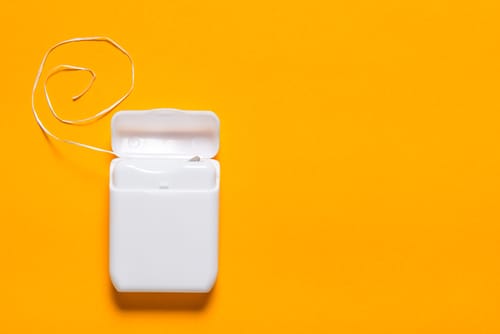Ramadan is a great time to focus on family, reflect with prayer, and of course, fast.
With that being said, it’s probably not a time you’d associate with having super fresh breath. If you’ve fasted for Ramadan before – or, heck, if you’re a fan of intermittent fasting – you’d know what we’re talking about.
While fasting is great for the body and soul, the one thing it isn’t so great for? Your breath! In fact, it’s even been described as a “social menace” by the Egyptian newspaper, Egypt Today.
What causes “fasting breath”?
The simple answer is: fasting!
But, it’s true. The main culprit isn’t the lack of food, but rather, the lack of water throughout the day. In this case, our mums are right: drinking more water really is the solution.
In the case of bad breath (a.k.a. halitosis), not drinking water makes a large impact. Water doesn’t just keep the cells in your body healthy and functioning, but it plays a very specific part in keeping your breath from smelling horrible… And that’s by producing saliva.
Drinking water keeps the saliva in your mouth flowing; and that saliva, in turn, keeps the bacteria in your mouth under control. You see, when you have enough saliva in your mouth, you’ll be swallowing, often. The act of swallowing, in turn, helps wash down bacteria, food debris, and dead cells that gang up in your mouth.
So, less water = less saliva, and less saliva = bad breath. It’s that simple, really.
Fret not, though: there are ways to combat fasting breath that don’t involve breaking your fast by taking a sip of water.
1. Clean your tongue

Fasting breath is caused by bacteria that’s already in your mouth. So it makes sense that getting rid of bacteria would be your first step to eliminating bad breath.
You can use a tongue scraper to scrape your tongue after brushing your teeth, or use your toothbrush to scrub your tongue. Be gentle though! You don’t want to accidentally make yourself gag. Pro tip: use the grooves on the back of your ZenyumSonic™ brush head to clean your tongue – that’s what it was specifically designed for!
2. Stay hydrated
Since fasting means you can’t drink any water during daylight hours, it’s common for people to be mildly dehydrated during the fasting month.
Staying hydrated after iftar is important, since dehydration can also be the culprit behind bad breath while fasting. Make use of the hours after iftar and during sahur to drink enough water, and you should be able to cruise through the day with fresher breath.
3. Floss!

No need to look so guilty. Flossing is something many people tend to neglect in their oral health routine, but there’s no better time to start flossing!
Brushing your teeth only removes a portion of the food debris that gets stuck in your teeth, leaving some still stuck in the crevices in between your teeth. In turn, that food turns into bacteria.
So, in a bid to get rid of as much existing bacteria in your mouth as possible, get that floss out!
4. Quit smoking
We know, we know. Sacrilege! How could you give up your morning coffee? Isn’t it bad enough that you can’t have your post lunch perk up?
Have you ever noticed that you tend to need the bathroom a lot more when drinking tea and coffee? You probably do. This is because tea, coffee and other caffeinated drinks like energy drinks are diuretics.
A diuretic is a substance that helps your body get rid of salt, and, in turn, water. Ever heard of someone complaining about bloating after eating a nice, salty serving of french fries? That’s because salt causes water retention! So, diuretics are great for getting rid of that water retention.
But, when you aren’t getting enough water through the day, and you’re drinking that java just before you start your fast for the day, you’re going to be losing water, without being able to replenish the water you’re losing. So you’ll be even more dehydrated and risking bad breath!
We know it’s hard, but keep off the coffee. Your friends and family will thank you for it!
5. Skip the morning coffee/tea

We know, we know. Sacrilege! How could you give up your morning coffee? Isn’t it bad enough that you can’t have your post lunch perk up?
Have you ever noticed that you tend to need the bathroom a lot more when drinking tea and coffee? You probably do. This is because tea, coffee and other caffeinated drinks like energy drinks are diuretics.
A diuretic is a substance that helps your body get rid of salt, and, in turn, water. Ever heard of someone complaining about bloating after eating a nice, salty serving of french fries? That’s because salt causes water retention! So, diuretics are great for getting rid of that water retention.
But, when you aren’t getting enough water through the day, and you’re drinking that java just before you start your fast for the day, you’re going to be losing water, without being able to replenish the water you’re losing. So you’ll be even more dehydrated and risking bad breath!
We know it’s hard, but keep off the coffee. Your friends and family will thank you for it!
Now that you’ve got all the tips you need to keep your breath fresh during Ramadan, we wish all of our Muslim readers a blessed and fruitful Ramadan. Ramadan Mubarak, everyone!
Want A Straighter Smile?
Take a Free Smile Assessment to see if
Zenyum’s the right fit for you!




